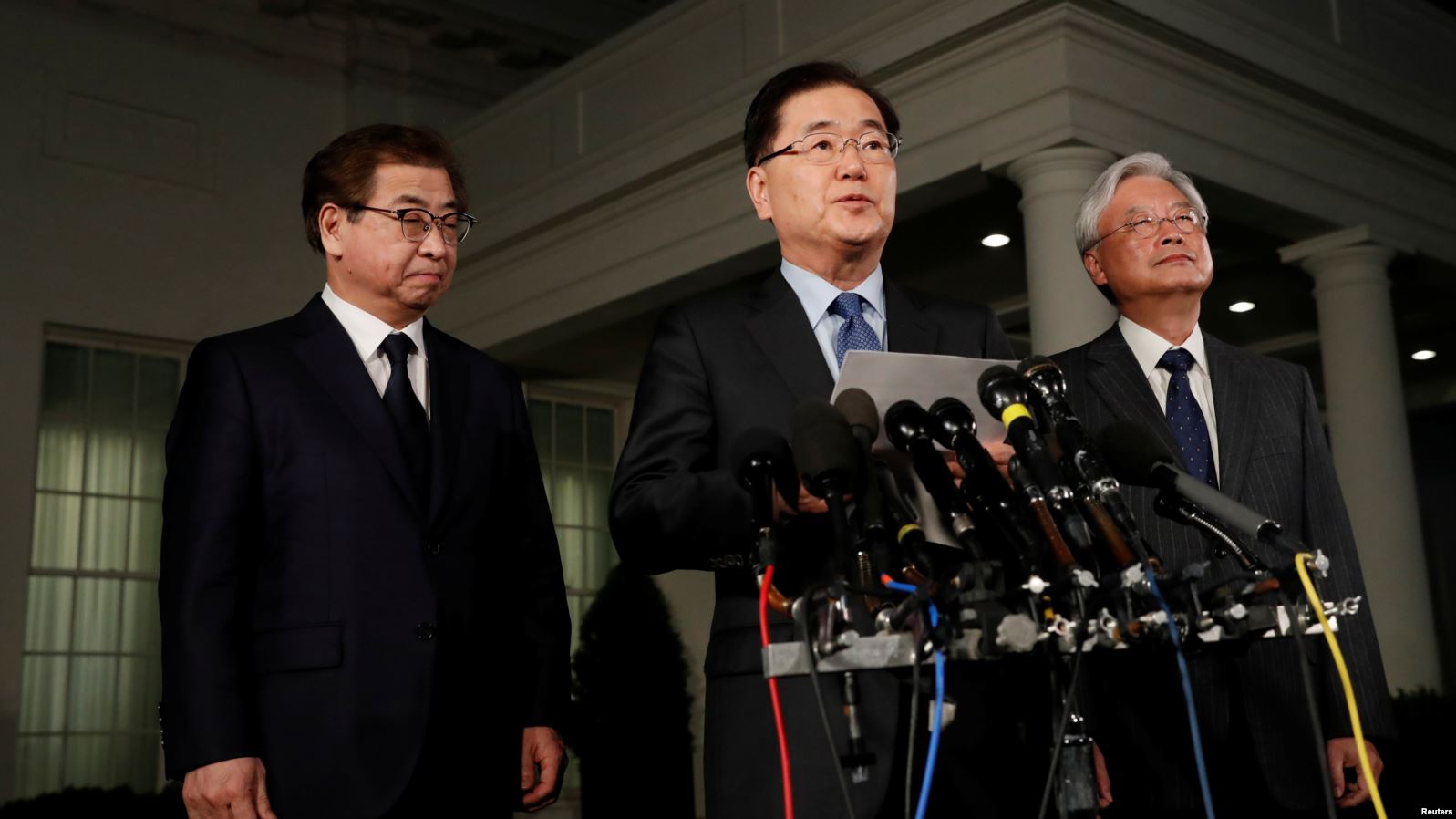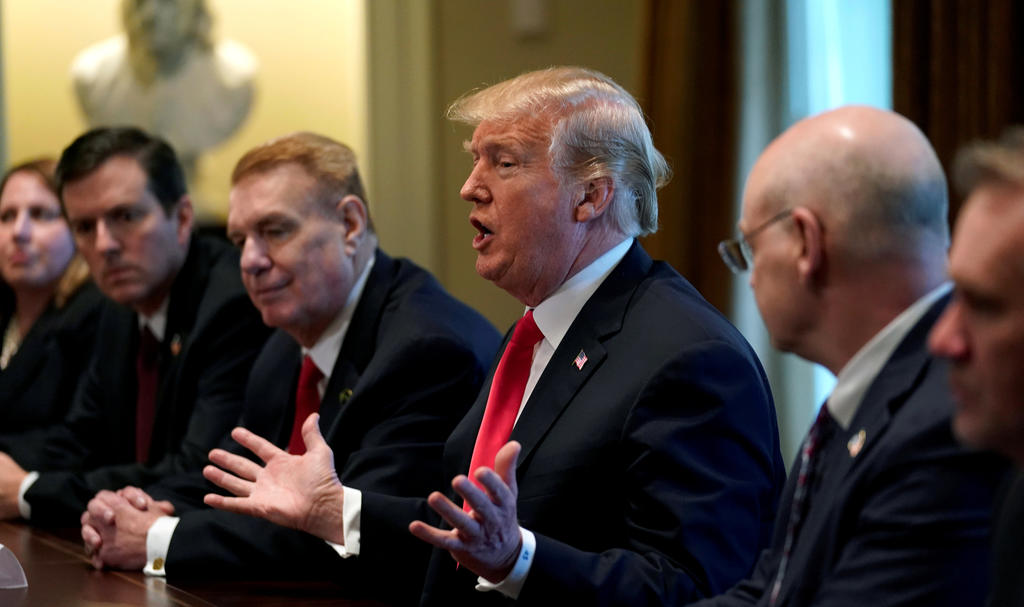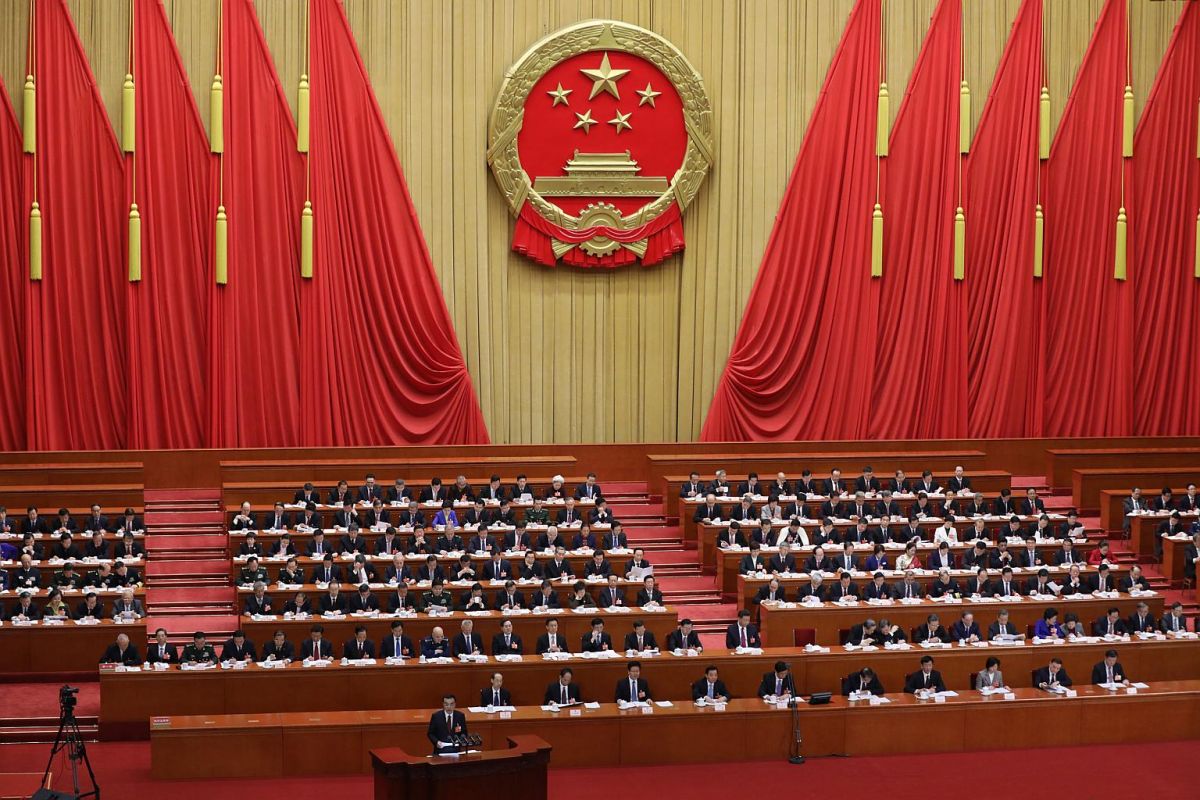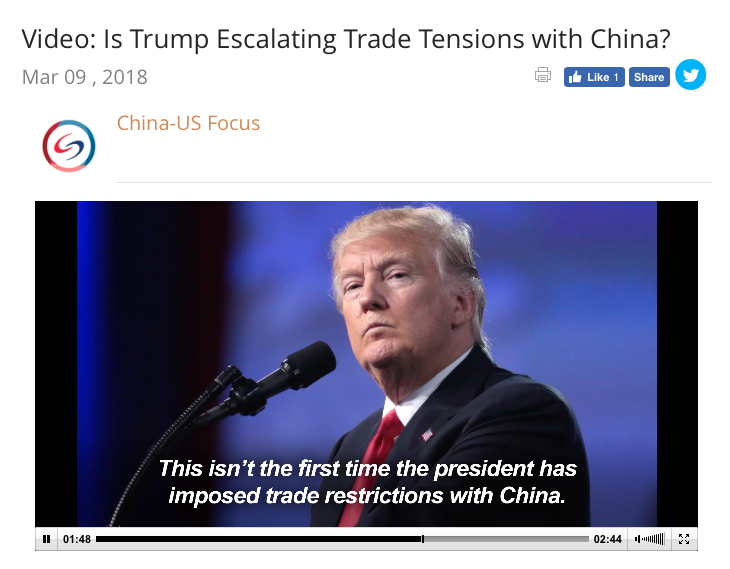
 President Trump Agrees to Meet Kim Jong-Un
President Trump Agrees to Meet Kim Jong-UnIn a move that surprised many, late on Thursday, President Trump announced that he had accepted an invitation to meet with North Korean leader Kim Jong Un. The announcement was made by the South Korean national security advisor, in a statement outside the White House. Chung Eui-Yong, who had met with Kim Jong Un in North Korea, explained Kim's professed commitment to denuclearization and his "eagerness" to meet with the President. Should the meeting go ahead, it would be the first time a sitting U.S. president has met with a North Korean leader.
The announcement has been met with both positive responses and hesitation. U.S. Secretary of State Rex Tillerson, who is currently in Africa, said, "We're a long way from negotiations. We just need to be very clear-eyed and realistic about it." Many in the U.S. foreign policy community are calling Trump's decision a high-stakes gamble. The meeting could give Kim Jong Un exactly what he wants, they argue— legitimacy on the world stage without committing to any promises on denuclearization. However, it could also pave the way for North Korea's denuclearization and a safer world.
China has announced its approval of the meeting, regardless of the outcome. Chinese Foreign Ministry spokesman Geng Shuang said that China was hopeful both parties would "show their political courage," and that China supported "positive inter-Korean and U.S.-North Korean interactions."
China and the U.S. have cooperated closely on North Korea, but Trump's hostile rhetoric and China's "no war no chaos" position have resulted in tensions over the best policy options. China-US Focus contributor Sun Ru wrote late last year that "though infuriated by Kim Jong-un's provocations. . .China insists that there is no military solution to this issue. Otherwise, there will be war and turbulence on the peninsula." No timetable has yet been set for the meeting, but there are indications that it is due to take place by May.
 Section 301 Investigation May Bring New Trade Friction
Section 301 Investigation May Bring New Trade FrictionAfter a week of high profile announcements on new U.S. trade measures, including steel and aluminum tariffs which have met widespread criticism from China, the European Union and other U.S. allies, the U.S. government may be set to announce even more measures in the coming weeks. An important inquiry that is still pending results is the Section 301 investigation into Chinese technology policies and practices. Opened last August by the U.S. Commerce Department, the investigation was a response to allegations that Chinese government policies led to intellectual property (IP) theft from American companies.
An announcement on the results of this investigation is expected next month. President Trump, however, has already indicated that the U.S. response to this investigation may be just as harsh as its response to the investigations over steel and aluminum. "The U.S. is acting swiftly on Intellectual Property theft. We cannot allow this to happen as it has for many years!" President Trump tweeted on Wednesday. Reportedly, the administration is considering imposing tariffs on over 100 Chinese products and adding additional restrictions on Chinese investment in the United States.
On Thursday, an independent commission on intellectual property theft, which is co-chaired by a former U.S. director of national intelligence, urged the U.S. government to reform the body that oversees investments, the Committee on Foreign Investment in the United States (CFIUS.) Reforms could include an evaluation of the foreign entity's historical record on IP.
China's Foreign Minister, Wang Yi, addressed questions about the new U.S. trade measures on Thursday. "A trade war is never the right solution," he said. "In a globalized world, it is particularly unhelpful, as it will harm both the initiator and the target countries. In the event of a trade war, China will make a justified and necessary response."
 Week One of the "Two Sessions" in Beijing
Week One of the "Two Sessions" in BeijingFive days in to the annual National People's Congress (NPC), and Beijing continues to be a hot-spot of political activity. On Monday, Chinese Premier Li Keqiang delivered a speech to mark the beginning of the NPC, which laid out the government's plans for the year ahead. Taking almost two hours to deliver, it covered a range of topics, from economic growth to defense spending. It mentioned several policies of interest to those outside China, including the government's plans to open up to foreign investment, especially in the telecom, education and healthcare sector, and deliver tax cuts of around 800 billion yuan in 2018 for individuals and corporations, including foreign investors. The speech also announced a GDP growth target for China of "around 6.5 percent" in 2018, continuing the transition from rapid growth to higher-quality growth noted by China-US Focus contributors last year.
The majority of the content was not new, echoing plans already announced by President Xi or mentioned in economic advisor Liu He's speech at the Davos Economic Forum. In fact, China-US Focus contributor Alicia Garcia Herrero wrote this week that Premier Li Keqiang's report "sounded empty after what is undoubtedly more important for the future of China – the constitutional amendments." High-ranking officials, including Wang Huning, Zhao Leji and Wang Yang have publicly expressed their support for the amendments, which are under deliberation at the national legislature and include the removal of term limits for the posts of president and vice president. The constitutional amendments are expected to be approved in a vote on Sunday, according to The New York Times. Other important announcements, including the anticipated appointment of Wang Qishan to vice president and reform and reorganization plans for multiple government institutions, are expected next week.
 Could President Trump's Steel and Aluminum Tariffs Start a Trade War?
Could President Trump's Steel and Aluminum Tariffs Start a Trade War?On Thursday, President Trump signed orders imposing sweeping new tariffs on imported steel and aluminum. The tariffs, which are set at 25 percent on steel and 10 percent on aluminum, are set to start in 15 days. These tariffs were a response to the "Section 232" investigations by the U.S. Commerce Department into the affect of steel and aluminum imports on U.S. national security; investigations which were widely considered to be targeting China. In the coming weeks, President Trump is expected to make a determination on the results of the Section 301 inquiry into intellectual property.
What are the "Section 301" and "Section 232" investigations about, and why has China been named? Is the United States heading towards a trade war with China? In a new explainer video, China-US Focus delineates how these investigations came about and the initial response from the international community, including China, to the shocking new measures. Click here to find out more.
Prepared by China-US Focus editorial teams in Hong Kong and New York, this weekly newsletter offers you snap shots of latest trends and developments emerging from China every week, while adding a dose of historical perspective.
- 2018-03-02 U.S. Imposes Tariffs on Chinese Aluminum
- 2018-02-23 A Week of Developments Related to North Korea
- 2018-02-16 Cui Tiankai says U.S. Should Not Advocate Confrontational Strategy Towards China
- 2018-02-09 China Releases the “No.1 Central Document” Containing New Rural Policies
- 2018-02-02 Wang Qishan Appointed to the National Legislature
- 2018-01-26 New Edition of the Focus Digest
- 2018-01-19 South Korea and North Korea to Compete Together at the Winter Olympics
- 2018-01-12 U.S. House of Representatives Passes Taiwan Bills
- 2018-01-05 U.S. Rejects Sale of Moneygram to China’s Ant Financial
- 2017-12-22 Trump’s National Security Strategy Labels China a “Revisionist Power”
- 2017-12-15 White House and Secretary of State contradict each other on North Korea talks
- 2017-12-08 China Boasts its Technology Chops at the 4th Annual World Internet Conference
- 2017-12-01 The Future of the China-US Economic Relationship
- 2017-11-17 The “Indo Pacific”: A New American Strategy for Asia?
- 2017-11-10 President Trump Revels in China’s State-Visit Red Carpet Treatment
- 2017-11-03 Will China Display Hard or Soft Power in the Era of Xi?
- 2017-10-27 All Eyes on Xi
- 2017-10-20 The 19th Party Congress Begins
- 2017-10-13 Tech Titans